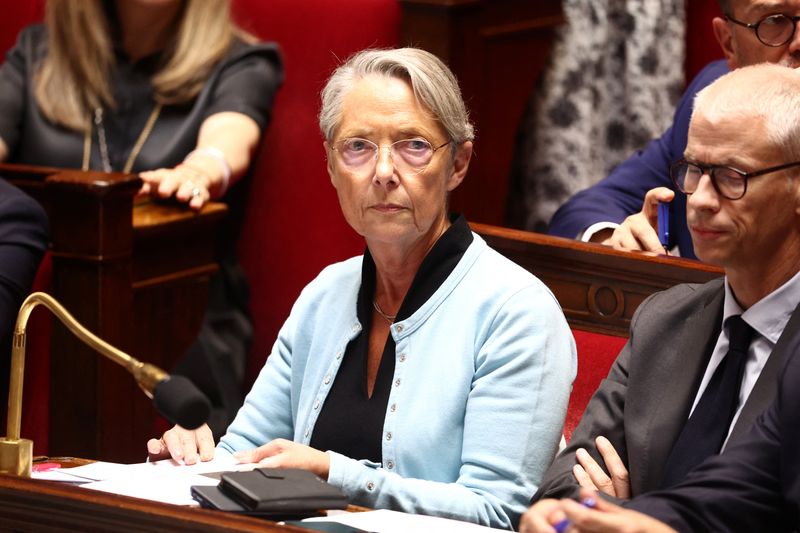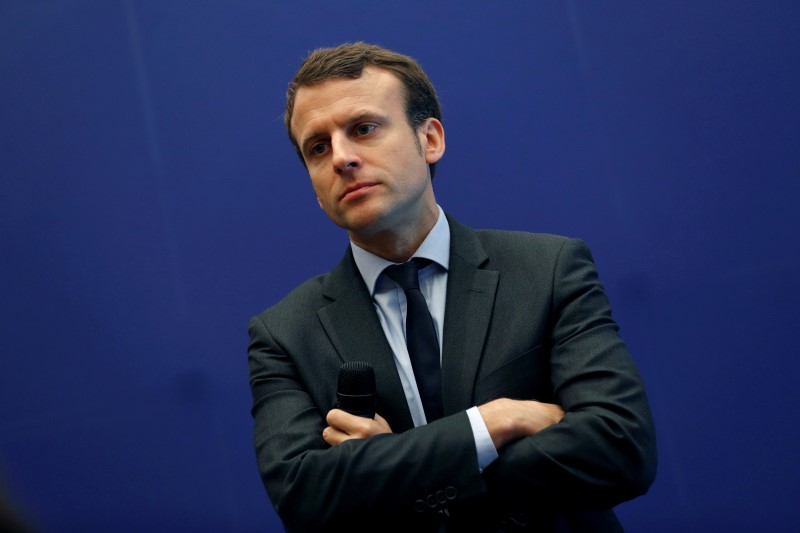PARIS (Reuters) - France's government pushed revenue legislation in the 2024 budget bill through the lower house of parliament on Wednesday using special constitutional powers to bypass a lawmakers' vote.
President Emmanuel Macron's government lacks an outright majority in parliament and has repeatedly resorted to powers granted by an article of France's constitution to get legislation passed despite opposition.
The government used those powers to advance the budget bill after lawmakers in the finance commission of the lower house rejected the revenue part of the legislation.
They had sought to add more than 5,300 amendments to the bill, threatening to upend the government's deficit-reduction plans.
"It's clear that no opposition party is prepared to vote in favour of this budget bill and yet our country needs this budget," Prime Minister Elisabeth Borne told lawmakers as she said she would invoke article 49.3 of the constitution.
The new version of the budget bill will be adopted if a motion of censure against the government that was lodged by far-left opposition lawmakers fails, which has been the case in the past.
The government's version of the budget bill included 378 amendments, including a reduction in a tax break some tenants of short-term rental company Airbnb currently benefit from.
It also extends a claw-back mechanism next year on power companies' revenues when prices are high. The mechanism was introduced at the peak of Europe's energy price shock.

Another amendment would require companies to make contributions to profit-sharing schemes if they buy back their own shares only to cancel them. Companies sometimes do this to reduce their outstanding shares and boost share value.
Lawmakers in the finance commission are due to consider the expenditures side of the bill from Oct. 24 before it goes to a vote before the full lower house and then onto the Senate, though the government may need to again bypass a vote.
